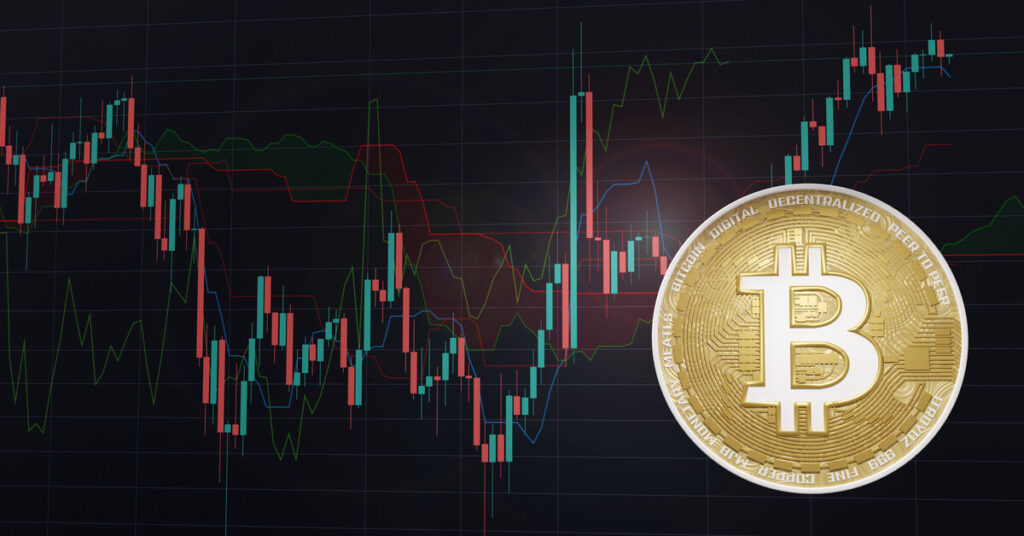
As the Cryptocurrency Market Cap Breaches $2 Trillion, Are We Hitting a Tipping Point?
Only three months on from the market cap of the crypto market hitting a trillion dollars it has already passed two trillion. As the world begins to step out from the global pandemic, cryptocurrencies are solidifying themselves as a key part of the new global economy.
- The $2 trillion market cap milestone
- MicroStrategy continues to flex their wallet
- Market validation from Fidelity
- Blockchain technology utilized in equity markets
- Unemployment falls but inflation continues to worry economists
- IMF confirms crisis end is ‘increasingly visible’
- Big-ticket reports to watch out for this week
The $2 trillion market cap milestone
There is nowhere better to start this week’s cryptocurrency round-up than with an acknowledgment that last week, continued enthusiasm in the cryptocurrency markets resulted in the total market cap surpassing the $2 trillion marker.
Undoubtedly the passing of the $2 trillion mark has been bolstered by Bitcoin and Ethereum, however, Bitfinex CTO, Paolo Ardoino commented that “as the industry matures, we expect more blockchain-based applications to be introduced to the world, and coinciding with that, a surge of interest around other alternative assets…as they become more market-ready”.
With the $1 trillion market cap only being broken in January 2021, the question now is how long will it take before it hits $3 trillion?
MicroStrategy continues to flex their wallet
MicroStrategy, the business intelligence company, continued to make headlines this week by confirming the company had purchased a further 253 Bitcoins for approximately $15 million. Analysts quickly calculated that the average purchase price per Bitcoin was $59,339.
Last year, MicroStrategy was the first publicly listed company to add Bitcoin to its treasury. Their lead was closely followed by the likes of Tesla, Grayscale and Square. However, with their early move and the parabolic advances we have seen in the Bitcoin price, 80% of the company’s worth is now linked to its digital asset investments, rather than its business intelligence service. As a result, fluctuations in Bitcoin price now weigh heavily on MicroStrategy’s share price.
“This investment reflects our belief that Bitcoin, as the world’s most widely-adopted cryptocurrency, is a dependable store of value and an attractive investment asset with more long-term appreciation potential than holding cash” said MicroStrategy’s founder, Michael Saylor.
The company now holds 91,579 Bitcoins, with an average purchase price of $24,311.
Not a bad digital wallet to hold the private keys to.

Market turns a corner with Fidelity
The head of Fidelity Digital Assets at Fidelity Investments, Tom Jessop, this week announced that the cryptocurrency market may have turned a particularly important corner. He believes that the rate of adoption is now likely to accelerate.
He described how the current stimulated environment has resulted in a ‘tipping point’ for digital assets. “The pandemic, quite frankly, was a catalyst for institutional adoption, and specifically bitcoin and the narrative, or use-case around digital-gold” Jessop said.
Fidelity was an early adopter of bitcoin, with their digital asset unit created in 2015 and it looks like the doors won’t be closing on that unit any time soon.

Blockchain technology utilized in equity markets
A blockchain infrastructure provider, called the Paxos Trust Company, this week confirmed that trades of U.S. listed equities were settled during the same-day settlement cycle thanks to its new blockchain settlement service. A trade settlement period is the time between the trade execution date and the settlement date when the trade is considered final. The buyer and seller must fulfill their duties before the settlement period is completed.
Initially tested by Credit Suisse and Nomura’s Instinet, the company is describing it as the first live application of blockchain technology for the U.S. equities market, which enables broker-dealers to settle stock trades with each other, rather than using the National Securities Clearing Corporation (NSCC) as an intermediary.
The issue of shorter settlement periods was highlighted recently by the GameStop saga, where many traders failed to get their trades cleared.
Unemployment falls but inflation continues to worry economists
In the wider economy, it was a promising week for jobs growth with U.S. nonfarm payrolls rising to 916,000 in March, far higher than estimated. The greatest increases were seen in leisure and hospitality; sectors that have seen a boost from vaccination rollout. Although positive, the sector is still far below its pre-pandemic figures.
Elsewhere, China also experienced advances in factory gate prices and producer price index this week, as the world’s second-largest economy continues to outperform.
With continued job market growth, manufacturing increases, and ongoing stimulus relief, many economists continue to worry about inflation and the lack of movement from the Fed. However, several Fed policymakers have repeated that the labor market is still not strong enough to force the central bank to raise interest rates.
Last week, Cleveland Reserve President Loretta Mester, stated: “I’m thinking that we’ll see a very strong second half of the year, but we’re still far from our policy goals. It was great to see that jobs report. We need more of them coming our way”.
The Fed and Central banks continue to commit to tolerate inflation running above the 2% mark if it’s required for improving the economy as a whole.
IMF confirms crisis end is ‘increasingly visible’
With the continuing vaccination rollout, the International Monetary Fund (IMF) is expecting a strong recovery throughout the remainder of 2021, with a prediction that the global economy could see an advance of 6%, with the US expected to lead the charge with a country increase of 6.4%. The US is expected to return to pre-pandemic levels later this year, rather than 2022, which is the date envisaged for most other countries.
IMF Chief Economist, Gita Gopinath, said: “Even with high uncertainty about the path of the pandemic, a way out of this health and economic crisis is increasingly visible”.
Improved economic outlook and a steadier path moving forward should help solidify the cryptocurrency market moving forward.
Big-ticket reports to watch out for this week
Monday – Eurozone Retail Sales (MoM & YoY)
Tuesday – US CPI ex Food & Energy (MoM & YoY)
Wednesday – New Zealand Central Bank Interest Rate Decision
Thursday – Australia Employment Figures, US Retail Sales and US Initial Jobless Claims
Friday – China Retail Sales (YoY) and China GDP (QoQ and YoY)
To stay up to date on all things crypto, like Xcoins on Facebook, follow us on Twitter and LinkedIn and enter your email address at the bottom of the page to subscribe.

